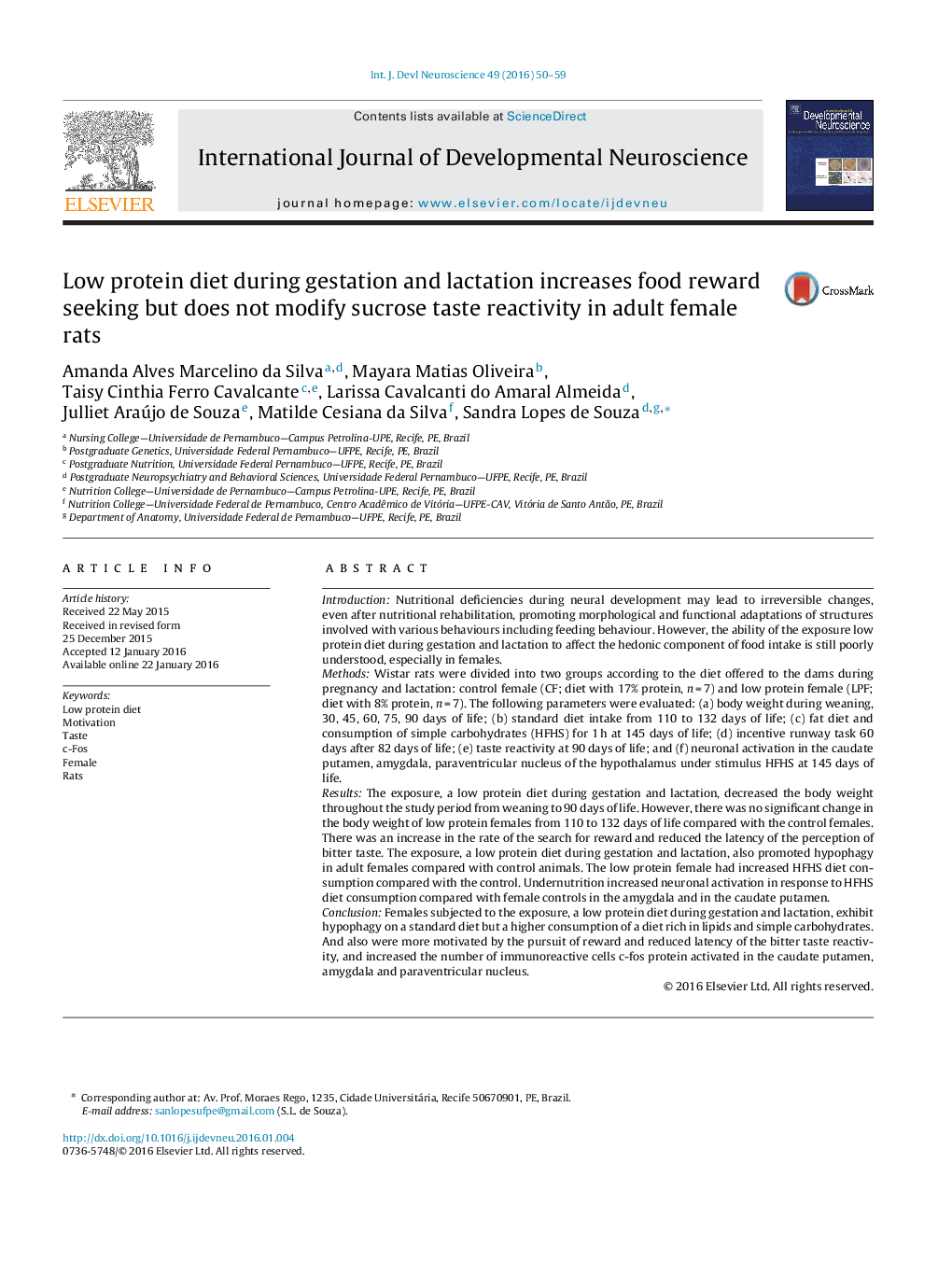| کد مقاله | کد نشریه | سال انتشار | مقاله انگلیسی | نسخه تمام متن |
|---|---|---|---|---|
| 2785675 | 1568381 | 2016 | 10 صفحه PDF | دانلود رایگان |
• Undernutrition affects the motivation for food reward.
• Undernutrition modifies the perception of bitter taste.
• Undernutrition increases neuronal activation in the reward system.
IntroductionNutritional deficiencies during neural development may lead to irreversible changes, even after nutritional rehabilitation, promoting morphological and functional adaptations of structures involved with various behaviours including feeding behaviour. However, the ability of the exposure low protein diet during gestation and lactation to affect the hedonic component of food intake is still poorly understood, especially in females.MethodsWistar rats were divided into two groups according to the diet offered to the dams during pregnancy and lactation: control female (CF; diet with 17% protein, n = 7) and low protein female (LPF; diet with 8% protein, n = 7). The following parameters were evaluated: (a) body weight during weaning, 30, 45, 60, 75, 90 days of life; (b) standard diet intake from 110 to 132 days of life; (c) fat diet and consumption of simple carbohydrates (HFHS) for 1 h at 145 days of life; (d) incentive runway task 60 days after 82 days of life; (e) taste reactivity at 90 days of life; and (f) neuronal activation in the caudate putamen, amygdala, paraventricular nucleus of the hypothalamus under stimulus HFHS at 145 days of life.ResultsThe exposure, a low protein diet during gestation and lactation, decreased the body weight throughout the study period from weaning to 90 days of life. However, there was no significant change in the body weight of low protein females from 110 to 132 days of life compared with the control females. There was an increase in the rate of the search for reward and reduced the latency of the perception of bitter taste. The exposure, a low protein diet during gestation and lactation, also promoted hypophagy in adult females compared with control animals. The low protein female had increased HFHS diet consumption compared with the control. Undernutrition increased neuronal activation in response to HFHS diet consumption compared with female controls in the amygdala and in the caudate putamen.ConclusionFemales subjected to the exposure, a low protein diet during gestation and lactation, exhibit hypophagy on a standard diet but a higher consumption of a diet rich in lipids and simple carbohydrates. And also were more motivated by the pursuit of reward and reduced latency of the bitter taste reactivity, and increased the number of immunoreactive cells c-fos protein activated in the caudate putamen, amygdala and paraventricular nucleus.
Journal: International Journal of Developmental Neuroscience - Volume 49, April 2016, Pages 50–59
